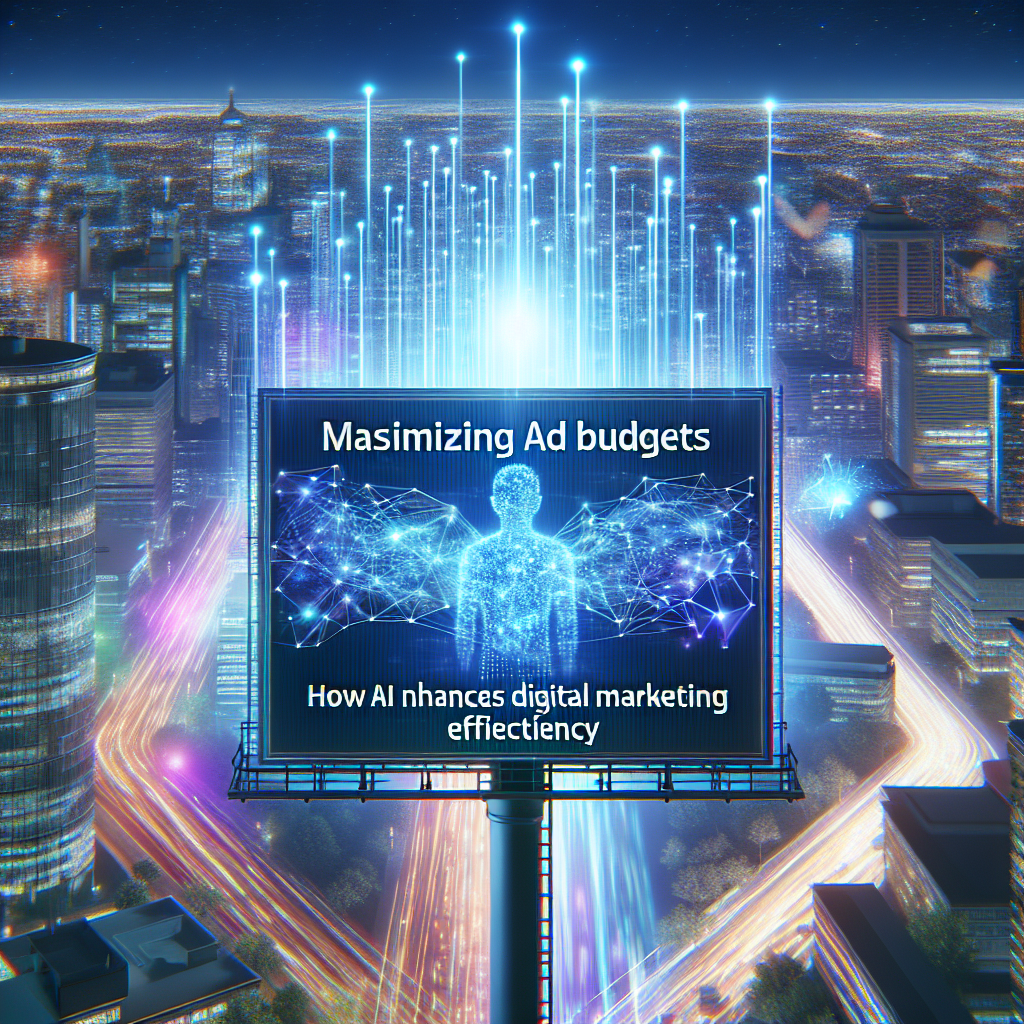In the fast-changing realm of digital marketing, companies are always on the lookout for innovative methods to optimize their advertising budgets. With the advent of artificial intelligence (AI), marketers now possess powerful tools that enhance efficiency and achieve superior results. This article delves into how AI is revolutionizing ad spend optimization in digital marketing.
The Challenge of Ad Spend
As digital advertising expands rapidly, businesses confront the challenge of maximizing their advertising investment for the best possible return on investment (ROI). Traditional campaign management often involves considerable guesswork, relying on historical data and broad audience targeting. However, with the digital landscape becoming increasingly fragmented, a more sophisticated approach is essential.
Understanding AI’s Role
AI technologies, particularly machine learning (ML) algorithms, are adept at analyzing extensive datasets in real-time. This capability empowers marketers to gather insights into consumer behavior, forecast trends, and automate decision-making processes. The primary advantages of utilizing AI for ad spend optimization include:
-
Data-Driven Insights: AI systems possess the ability to examine user behavior across various platforms to unearth patterns and trends, allowing marketers to tailor their strategies based on consumer preferences.
-
Targeted Advertising: Machine learning algorithms can segment audiences with remarkable precision. By utilizing demographic information, online behavior, and purchase history, businesses can deliver tailored messages to specific user groups, enhancing engagement rates and conversions.
-
Budget Optimization: AI can dynamically distribute budgets across different channels based on performance metrics. By continuously assessing campaign effectiveness, AI systems can reallocate funds to the top-performing ads in real-time, maximizing ROI.
- Predictive Analytics: Using historical data, AI can anticipate upcoming trends and consumer spending patterns. This foresight enables brands to proactively adjust their strategies, staying ahead of the competition.
Case Studies and Success Stories
Numerous companies have effectively implemented AI-driven strategies, demonstrating the tangible advantages of optimizing ad spend.
-
Retail Industry: A prominent e-commerce platform incorporated AI tools to analyze customer interactions. By predicting purchasing behavior, they personalized user experiences, resulting in a 25% increase in conversion rates within three months.
-
Travel Sector: An online travel agency leveraged AI to refine its ad placements. Through continuous testing of ad formats and targeting parameters, the agency achieved a 35% reduction in customer acquisition costs, thanks to enhanced targeting.
- Financial Services: A leading bank utilized machine learning to understand client preferences and customize advertising messages, leading to improved campaign performance and a 20% boost in customer engagement.
Challenges and Considerations
Despite the significant benefits of AI in digital marketing, businesses must also address potential challenges:
-
Data Privacy: With the rising regulatory scrutiny over data usage, companies need to navigate compliance issues while responsibly leveraging consumer insights.
-
Integration: Merging AI tools with existing marketing platforms can be complex and demands a commitment to ongoing training and adaptation.
- Over-Reliance on Automation: While AI can automate numerous processes, human oversight remains crucial to accurately interpret data and maintain the creative aspects of advertising that resonate with target audiences.
The Future of AI in Digital Marketing
As technology progresses, the role of AI in optimizing ad spend will continue to expand. Trends such as conversational AI, augmented reality (AR) advertising, and advanced personalization tools will keep reshaping the digital marketing landscape. Brands that embrace these advancements will be better equipped to capture consumer attention and drive sales.
Conclusion
The influence of AI on digital marketing efficiency is substantial. By leveraging data-driven insights, targeted advertising, budget optimization, and predictive analytics, companies can significantly enhance their advertising effectiveness while reducing waste. As the digital landscape evolves, those ready to adopt AI technologies will undoubtedly lead the way in redefining customer engagement and strategically optimizing ad spend. The time to invest in AI-driven marketing strategies is now, laying the groundwork for future growth and success.

